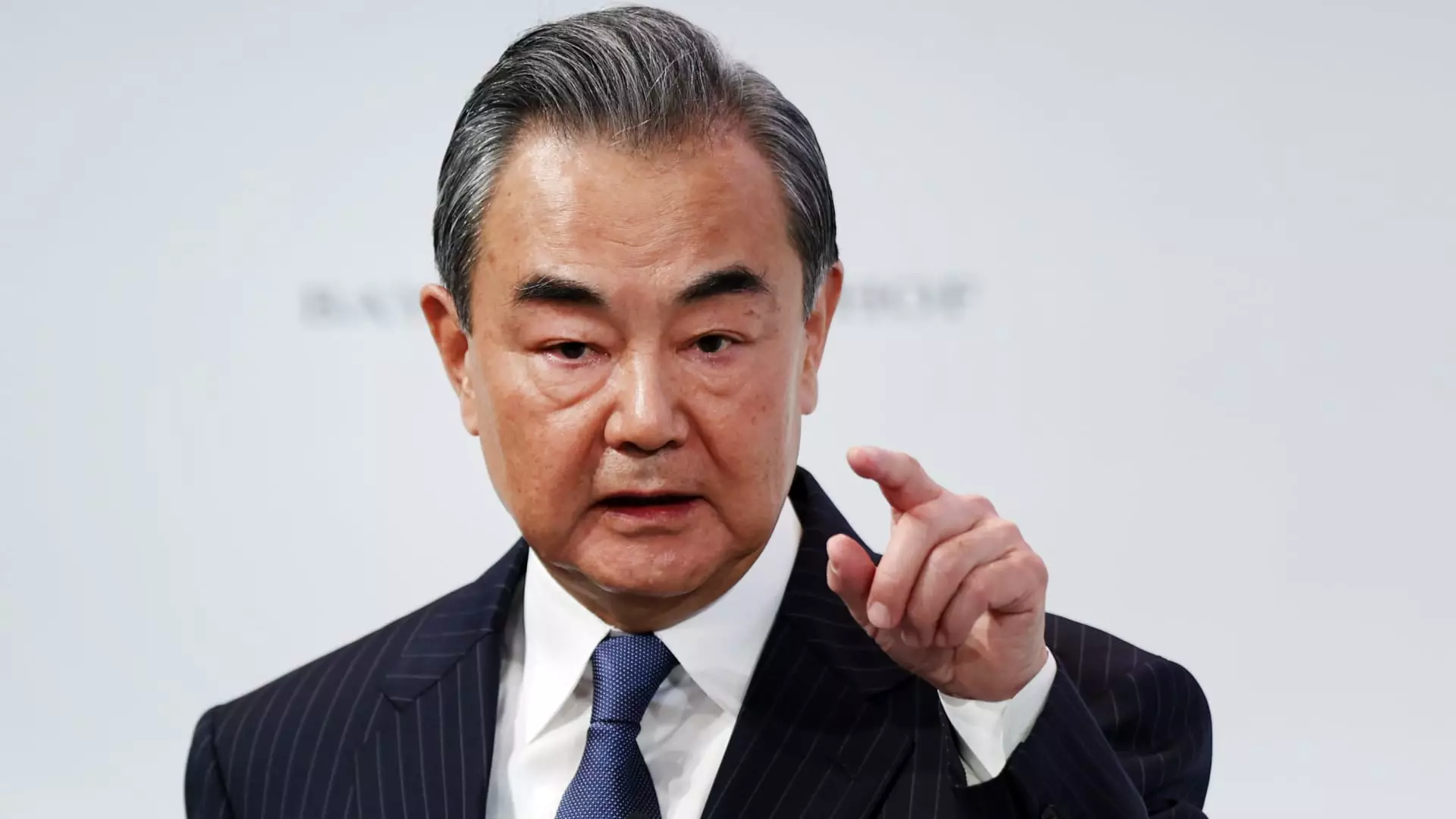In a remarkable shift in rhetoric, China’s Minister of Foreign Affairs Wang Yi recently adopted an unexpectedly conciliatory stance regarding the fraught relations with the United States. This comes at a time when tensions appear to be at a boiling point, characterized by aggressive trade tariffs and retaliatory measures. While just days ago, the dialogue from Beijing had been more combative—with sharp words echoing promises to fight back against perceived American aggression—Wang’s tone during the latest press conference was almost refreshing. His proposal for “peaceful coexistence” signals a critical crossroads for both nations.
What’s particularly striking about Wang’s comments is his emphasis on the extensive common interests shared between China and the U.S. This acknowledgment is pivotal, not merely for diplomatic niceties but because it lays the groundwork for potential collaboration that could yield tangible benefits for both countries. Wang accentuated the idea of partnership, suggesting that mutual success is achievable—if both nations can sidestep the pitfalls of aggression that have marred their relationship in recent years.
The Shadow of Trade Wars
Debt to the escalating trade conflict cannot be understated. The framework of U.S.-China relations has been contorted by a series of mounting tariffs instituted by the Trump administration, with retaliation from Beijing that targeted American agricultural products. Wang warned ominously of a “tariff war,” a term that evokes images of economic ruin for both sides. The stark reality is that these tariffs not only strain bilateral relations but potentially destabilize global markets. As trade becomes a battleground, it cultivates an environment where cooperative efforts dwindle at the expense of nationalistic pride and jockeying for economic dominance.
Wang’s potential shift towards dialogue is refreshing, but one must question whether such overtures can take root amidst these hostile economic undercurrents. Given that the backdrop is fueled by populist currents in U.S. politics, American leaders seem predestined to navigate through the tumult of domestic sentiments. The complexity of these geopolitical narratives intertwines economic realities with ideological posturing, making the path to reconciliation tortuous at best.
The Bigger Stage: Global Influence and Respect for Sovereignty
China’s aspirations extend far beyond its immediate concerns with the U.S. Wang reinforced China’s intent to bolster relationships with nations outside the customary Western sphere of influence, at a time when conventional Western alliances face their own moral and political plights. His statements regarding the Russia-Ukraine war highlight China’s desire to play a mediating role while standing firmly in support of its long-term ally, Russia. This hints at the ambitious scope of China’s foreign policy and its desire to present itself as a viable alternative to Western hegemony.
In advocating for a two-state solution for the ongoing Gaza situation, Wang did not shy away from addressing complex, multi-layered conflicts that lay at the center of global political discourse. He called for stepwise progress but also clarified China’s support for legitimate claims of sovereignty—suggesting that any resolution must honor the multifaceted realities on the ground. Such pronouncements position China not merely as a player but as a transformative protagonist on the world stage, looking to redefine alliances and power dynamics.
The Technological Frontier
Amidst this geopolitical chess game, Wang claimed that “unjustified external suppression” has not impeded China’s technological advancements. The assertion underscores a critical narrative: that China, regardless of external pressures, seeks innovation that it is willing to share with other nations. This pivot takes on larger implications, as it suggests a departure from a defensive posture to one of forward outreach and engagement.
Increasing investment in diplomatic initiatives, as proposed in China’s recent budget, signals that diplomatic soft power will play a crucial role in this evolving strategy. A notable 8.4% increase illustrates an intent to cultivate relations that can counterbalance the brunt of economic confrontations.
The evolving tempo of Wang Yi’s diplomatic overtures suggests a nuanced approach that could redefine not only U.S.-China relations but also global dynamics itself. The stakes have never been higher. As both nations grapple with their intertwined fates on the economic, technological, and political fronts, a critical decision looms: will they choose conflict or cooperation?

